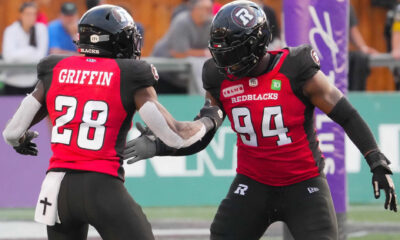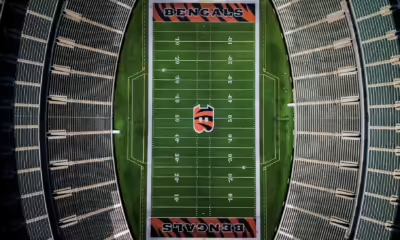
In the realm of sports fandom, few phenomena have reshaped the landscape quite like fantasy football. What began as a niche hobby has blossomed into a cultural phenomenon, captivating millions of fans worldwide and revolutionizing the way people interact with the sport they love. The rise of fantasy football has not only altered the dynamics of fan engagement but has also had a profound impact on the NFL itself, influencing everything from player performance to television ratings.
The Genesis of Fantasy Football
To understand the meteoric rise of fantasy football, we must first trace its origins. The concept of fantasy sports dates back to the 1960s, but it wasn’t until the early 1980s that the modern version of fantasy football began to take shape. A group of avid sports fans and statisticians devised a game in which participants assembled imaginary teams of real-life players and competed based on the statistical performance of those players in actual games.
Initially played offline with pen and paper, the game gradually evolved with the advent of the internet. The rise of online platforms and data accessibility paved the way for exponential growth, enabling fans to participate in leagues, draft players, and track scores with unprecedented ease.
The Fantasy Football Experience
Part of fantasy football’s allure lies in its immersive and interactive nature. Participants assume the role of team managers, making strategic decisions such as drafting players, setting lineups, and executing trades. The game transcends passive spectatorship, transforming fans into active participants with a vested interest in the performance of individual slot players across different teams and games.
Moreover, fantasy football fosters camaraderie and competition among friends, coworkers, and strangers alike. Leagues often feature unique rules, scoring systems, and traditions, creating a sense of community and camaraderie among participants. Whether it’s trash talk in the group chat or friendly rivalries that span seasons, fantasy football has a knack for forging connections and fostering a sense of belonging.
Impact on Fan Engagement
Fantasy football has fundamentally altered the way fans consume and engage with the NFL. No longer content to passively watch games, fantasy football participants have a vested interest in a multitude of matchups across the league. A seemingly inconsequential game between two bottom-dwelling teams suddenly becomes must-watch television when a fantasy owner’s playoff hopes hang in the balance.
This heightened level of engagement extends beyond individual games, influencing viewership habits and media consumption. Fantasy football participants are more likely to watch additional games, consume player-specific content, and follow NFL news year-round. As a result, the league has experienced a surge in viewership and engagement, with fantasy football serving as a driving force behind its continued popularity.
Influence on Player Performance
The impact of fantasy football extends beyond the realm of fandom, permeating the very fabric of the NFL itself. Players are keenly aware of their fantasy value and its implications for their careers, leading to a shift in priorities and performance incentives. Whereas individual accolades and team success were once the primary motivators, players now have a financial stake in their fantasy statistics, whether through performance bonuses, endorsements, or off-field opportunities.
This phenomenon has prompted a shift in player behavior, with some openly embracing their fantasy relevance and leveraging it to enhance their marketability. From social media engagement to fantasy-themed merchandise, players have recognized the value of catering to the fantasy football community and capitalizing on its fervent support.
Evolution of the Industry
The rise of fantasy football has spawned an entire industry dedicated to servicing the needs of fantasy enthusiasts. From online platforms and mobile apps to podcasts and television programs, there is no shortage of resources available to help players gain a competitive edge. Companies have capitalized on the lucrative market, offering premium subscription services, merchandise, and live events tailored to the fantasy football demographic.
Furthermore, the proliferation of daily fantasy sports (DFS) has introduced a new dimension to the fantasy landscape, offering fans the opportunity to draft new lineups and compete for cash prizes on a weekly basis. While traditional season-long leagues remain popular, DFS has emerged as a fast-paced alternative that appeals to casual and hardcore players alike.
The Future of Fantasy Football
As fantasy football continues to evolve, its impact on the sports landscape will only grow stronger. Technological advancements, such as virtual reality and augmented reality, promise to enhance the immersive experience for participants, blurring the lines between reality and fantasy. Meanwhile, the globalization of the NFL and the increasing availability of international player pools will expand the reach of fantasy football to new markets around the world.
However, with growth comes challenges, including issues of player safety, data privacy, and gambling addiction. As fantasy football becomes more ingrained in mainstream culture, stakeholders must address these concerns and ensure that the game remains a source of entertainment and camaraderie for all participants.
Yet, amidst this growth and innovation, significant challenges loom on the horizon. Issues such as player safety, data privacy, and the specter of gambling addiction cast a shadow over the game’s continued expansion. As fantasy football cements its place in mainstream culture, stakeholders must remain vigilant, implementing safeguards and regulations to protect participants and preserve the integrity of the game.
By addressing these challenges head-on, we can ensure that fantasy football remains a source of joy, camaraderie, and healthy competition for all who partake. As the game evolves and reaches new heights of popularity, let us prioritize the well-being of players and fans alike, ensuring that fantasy football continues to enrich lives and bring communities together for years to come.
Conclusion
In conclusion, the rise of fantasy football has transformed the way fans engage with the game, elevating it from a mere pastime to a cultural phenomenon with far-reaching implications. By bridging the gap between reality and fantasy, fantasy football has empowered fans to become active participants in the sport they love, forging connections, driving engagement, and reshaping the NFL landscape in the process. As the game continues to evolve, one thing remains certain: fantasy football is here to stay, and its influence will be felt for generations to come.
Continue the CFL Football discussions on our offical CFL Discord Channel


CFL News
CFL Power Rankings Week 5
Big Announcement: CFL Unveils Free Live Streaming Platforms
Get Alerts & Stay Connected
CFL iPhone AppCFL Android App


















